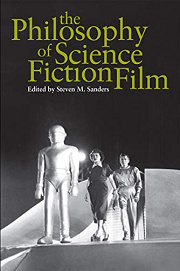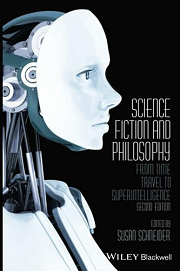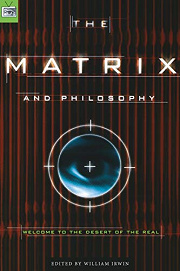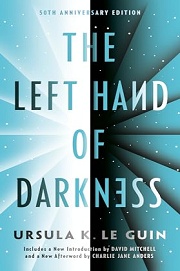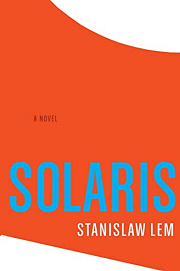Share your thoughts in a quick Shelf Talk!
The Philosophy of Science Fiction Film by Steven M. Sanders
From time loops to alien first contact, what do our favorite movies really say about fate, identity, and humanity? The Philosophy of Science Fiction Film opens the projector on big ideas, inviting readers to explore how cinema turns mind-bending questions into unforgettable stories.
Have you read this book? Share what you liked (or didn’t), and we’ll use your answers to recommend your next favorite read!
Love The Philosophy of Science Fiction Film but not sure what to read next?
These picks are popular with readers who enjoyed this book. Complete a quick Shelf Talk to get recommendations made just for you! Warning: possible spoilers for The Philosophy of Science Fiction Film below.
In The Philosophy of Science Fiction Film, did you enjoy ...
... the rigorous, big-questions approach to movies like Blade Runner, The Matrix, and 2001: A Space Odyssey?
Science Fiction and Philosophy: From Time Travel to Superintelligence by Susan Schneider
If the essays you loved—like the ones unpacking the Voight–Kampff test in Blade Runner, the simulated reality of The Matrix, or HAL’s unsettling rationality in 2001: A Space Odyssey—had you buzzing, you’ll sink right into Science Fiction and Philosophy. Schneider curates sharp, accessible pieces that take on personal identity, AI consciousness, determinism, and transhumanism, giving you the same thrill of seeing a film’s most provocative moments reframed as puzzles you can chew on long after the credits roll.
... idea-dense, analytic deep dives into cinematic thought experiments like The Matrix and Minority Report?
The Matrix and Philosophy: Welcome to the Desert of the Real by William Irwin
Did the volume’s debates about free will in Minority Report and the epistemic vertigo of The Matrix stick with you? This collection zeroes in on The Matrix trilogy with essays that press on the same pressure points—skepticism, personal identity, and moral responsibility. You’ll get that same spark you felt when reading about choice vs. causality in precrime or the red-pill dilemma, now expanded into a focused, lively philosophical conversation.
... the exploration of culture, identity, and society that you traced in films like Invasion of the Body Snatchers and Alien?
The Left Hand Of Darkness by Ursula K. Le Guin
If you were drawn to essays that used Invasion of the Body Snatchers and Alien to probe identity, otherness, and social norms, Le Guin’s The Left Hand of Darkness gives you that same reflective lens—only deeper and from the inside. Following Genly Ai’s fraught embassy to Gethen, where gender is fluid and politics are glacial, you’ll get an intimate, anthropological journey that turns cultural assumptions inside out the way those film analyses did.
... layered symbolism and allegory in speculative settings, like the meaning-dense readings of 2001: A Space Odyssey and Solaris?
Solaris by Stanislaw Lem
If you loved how the book drew symbolic threads from the monolith in 2001 or the ocean’s inscrutable manifestations in Solaris, Lem’s novel is the pure, undistilled experience. The sentient sea resurrects Kris Kelvin’s guilt as living apparitions, pushing you to read every encounter as metaphor—memory, grief, and the limits of human understanding—just like those close readings teased out in the film essays.
... reality-bending, self-referential puzzles akin to the discussions around The Matrix and Blade Runner?
Ubik by Philip K. Dick
If the anthology’s breakdowns of simulated worlds in The Matrix and the unstable humanity tests in Blade Runner grabbed you, Ubik will thrill you with its collapsing realities, half-life limbo, and that uncanny spray can that might be the only anchor to what’s real. It’s the same exhilarating uncertainty—philosophy smuggled in as plot twists—that those essays celebrated.
Unlock your personalized book recommendations! Just take a quick Shelf Talk for The Philosophy of Science Fiction Film by Steven M. Sanders. It’s only a few questions and takes less than a minute.
